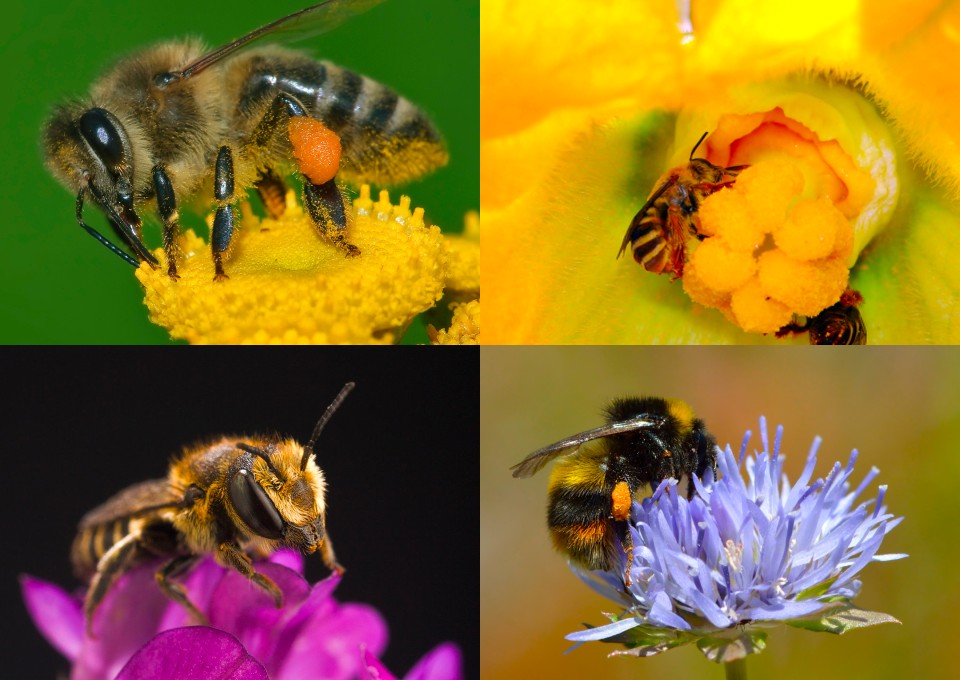Bees play a crucial role in global food pollination, and there are thousands of bee species worldwide. While it’s difficult to definitively rank the “top 10 most important bee species,” some species are particularly significant due to their efficiency as pollinators and their contribution to food production. Here are ten bee species that are commonly recognized for their importance in global food pollination:

European Honeybee (Apis mellifera): This is perhaps the most well-known and widely managed bee species. They are extensively used for commercial pollination services and honey production.

Bumblebees (Bombus spp.): Bumblebees are excellent pollinators of a wide range of crops, including tomatoes, blueberries, and peppers. They are also commercially reared for greenhouse pollination.

Mason Bees (Osmia spp.): Mason bees are efficient pollinators of many fruit trees, particularly apple and cherry trees. They are solitary bees, and some species are managed for commercial pollination.

Alfalfa Leafcutter Bee (Megachile rotundata): These bees are widely used to pollinate alfalfa crops, which are a major source of forage for livestock.

Squash Bees (Peponapis spp.): These bees are important pollinators of squash, pumpkins, and related crops. They are specialists in the cucurbit family.

Blue Orchard Mason Bee (Osmia lignaria): This mason bee species is an effective pollinator of various tree fruits, including cherries, apples, and plums.

Sweat Bees (Halictidae family): This large family of bees includes many species that are important pollinators of a wide range of plants, including some important crops.

Long-tongued Bees (e.g., Anthophora spp.): Some species of long-tongued bees are significant pollinators of certain crops, like blueberries.

Mining Bees (Andrena spp.): Mining bees are generalist pollinators, and some species are effective pollinators of various fruits and vegetables.
It’s necessary to note that the importance of a particular bee species can vary depending on the region and the specific crops being grown. Additionally, wild bees (those not managed by humans) play a significant role in natural ecosystems and can also contribute to agricultural pollination.
Remember that this list is not exhaustive, and there are many other bee species that contribute to global food pollination. Each species has its own unique ecological niche and role in pollination.
“A Bee is an exquisite Chemist.” ~ Royal Beekeeper to Charles II
